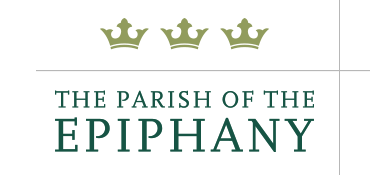 It is that time of year when time, itself, is most accentuated. We just ended Daylight Savings’ Time. Now nighttime comes so early for New Englanders. In due time, the snow will start falling. In a few weeks’ time, Thomas returns from sabbatical. It is also almost time for the holidays. For some this time of year brings joy and hope, while simultaneously provoking nostalgia for times past. Others may, in fact, dread this time of year as the voids within the soul and the unhealed wounds of the heart cause melancholy and isolation. Time can surely assign meaning to all of our feelings and experiences.
It is that time of year when time, itself, is most accentuated. We just ended Daylight Savings’ Time. Now nighttime comes so early for New Englanders. In due time, the snow will start falling. In a few weeks’ time, Thomas returns from sabbatical. It is also almost time for the holidays. For some this time of year brings joy and hope, while simultaneously provoking nostalgia for times past. Others may, in fact, dread this time of year as the voids within the soul and the unhealed wounds of the heart cause melancholy and isolation. Time can surely assign meaning to all of our feelings and experiences.
As members of the Church, however, we have a unique relationship to time. We see ourselves not simply as mortal beings subjected to the whims of chronological time. Rather, we recognize that through God’s grace, we have the opportunity to exist as one community in a way that transcends time. More precisely, we live in the Kairos, on God’s time, when we act with kindness, compassion, and justice. When we embody true discipleship, we refuse to succumb to the many ways in which time’s dominion exploits our vulnerabilities and anxieties.
I admit that any discourse, my own thoughts included, about time can be somewhat esoteric, if not downright confusing. Philosophers throughout the ages have struggled to comprehend time, even debating how it should be defined. Most frequently, humanity has pondered the question – what is time? Comprehending time in this way as some sort of object can be rather elusive. Hence, phrases such as “time is money” or “time is running out” are commonplace in our vernacular. 19th century Christian thinker, Soren Kierkegaard, reverts our understanding of time by rhetorically asking, who is time? The implied answer for Kierkegaard is we. We are time! Since we view ourselves as the People of God, it can be firmly asserted then that the Church is time!
We are time when we love our neighbor and when we follow the Beatitudes. We are time when we work towards building God’s Kingdom. Kierkegaard’s view of time is both a blessing and a challenge, a timely one (pun intended) given that we approach the liturgical season of Advent. How do we manifest time? How do we use, to quote Mary Oliver, our “one precious and wild life?” How do we connect with the Saints of previous ages and also inspire the Saints of the future?
Our entire being is time. We are time not when we trade a stock but when we exchange our hearts with someone who is lonely. We are time not when we sell a house but when we provide a space for someone to call home. We are time not when we hang Christmas decorations but when we welcome the refugee with hospitality. Our Savior, too, was born this way. We are time not when we do things on our own but when we gather and break bread together. May we commit to being time now and in the years to come!
Paul Shoaf Kozak
Intern





